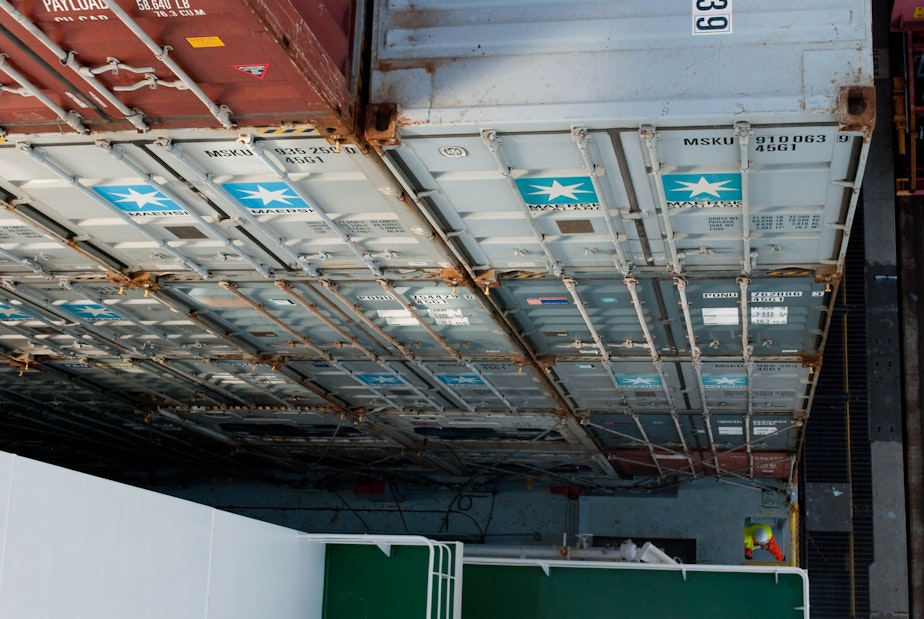Truckers Cautious, And Some Optimistic, As Port Gets Back to Work

Now that there’s an agreement in the West Coast ports dispute, ship containers are being processed at the ports of Seattle and Tacoma.
But the congestion on port lands won’t clear until truckers get in to move the containers. And that is the question now: How soon can the region’s truckers move them, and what will stand in their way.Truckers and container yards began the week with some nervous tension. Yards like ConGlobal Industries said they wanted nothing to interfere with the flow of trucks with containers onto their properties.
The hope is that truckers will be able to use these weeks to make up for at least some of the earnings they lost during the ports slowdown that began last October.
In the early morning, truckers who had parked their rigs on Sodo’s streets did last-minute maintenance. A nearby gas station was full of container-carrying trucks, fueling up before the container yards opened at 8 a.m.
The truckers are hoping to make some money, said Anthony, a trucker with his rig’s hood open and a bottle of antifreeze in his hand. “We just started, so we don’t know yet.”
Sponsored
Not all truckers were optimistic.
A trucker who called himself Tattoo said he used to be able to make 10 runs a day in the 1990s. But tighter city limits on truck routes, traffic congestion and the recent pace of ship unloading has meant he could only make six runs a day.
He said he did not believe that the settlement of the labor dispute would improve his luck. He said congestion on city streets would hamper his attempts to do more. “I don’t have any hope that it’s going to get better, because it never does,” he said.
And he said he doubted that port workers would speed up processing ships, when their agreement wasn’t yet ratified.
Many truckers do not want to speak publicly about the ports dispute. People who did speak to KUOW did not give full names, saying they don’t want to get in trouble with dock workers or the shipping companies who were at the center of the labor conflict.
Sponsored
“I’m just so sick of the thing,” said Tom, a trucker at the gas station.
He said truckers like him are treated "like crud," though they are a crucial part of the movement of goods.
During the dispute, truckers like him often waited hours to pick up a single container instead of working constantly. Tom cited the top wage for a crane operator in the International Longshore and Warehouse Union – approaching $150,000 – and the relative comfort of the shipping companies and said he resented having his income compromised because of their dispute.
“And it hurts us and it hurts everybody, all for their greed," he said. "Both of them are greedy."
Tom says if the dispute is really over, then “Yes, yes, now we’ll finally be able to make some money. Because we won’t have to be there for three or four hours to get a can in or out.”
